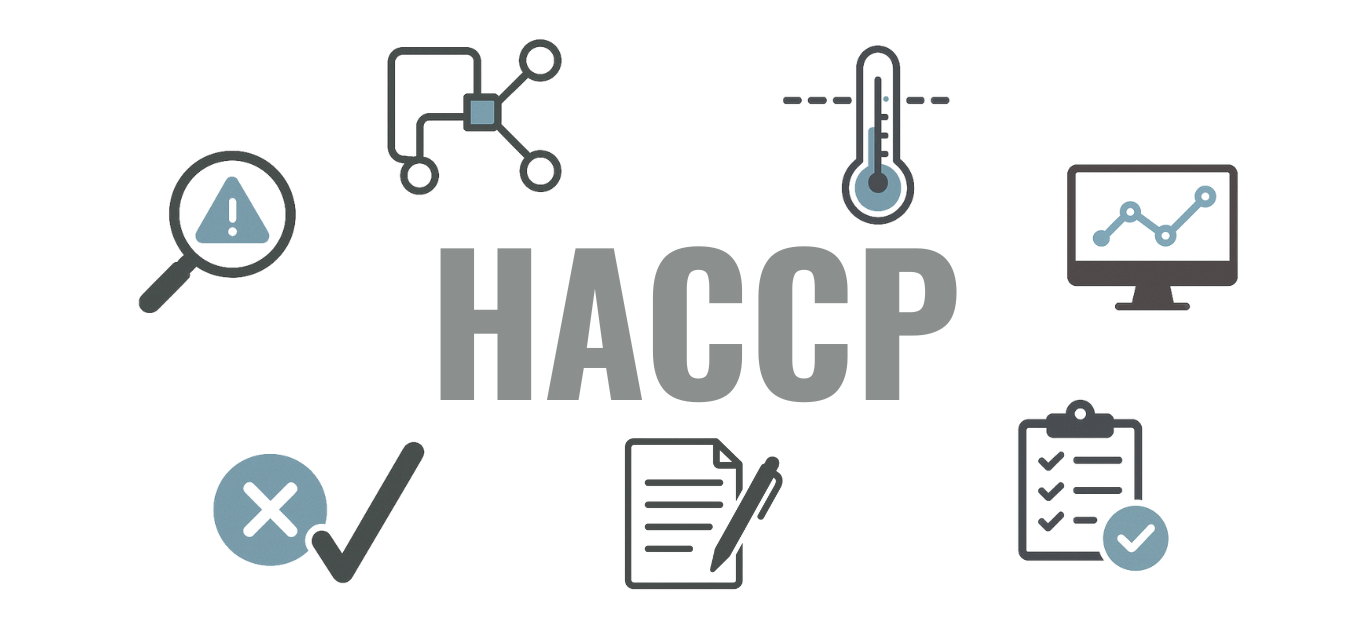
News + Updates
Find out what our team has been up to.

Find out what our team has been up to.

For food brands, ensuring safety and compliance means working with suppliers who understand and implement HACCP principles at every step. From preventing contamination to meeting audit expectations, HACCP isn't just for processors, it's the backbone of a trustworthy supply chain.
HACCP stands for Hazard Analysis and Critical Control Points. At its core, it’s a proactive approach to food safety that helps identify and prevent potential hazards before they happen.
Based on 7 principles, HACCP encourages businesses to get ahead of the risks before problems appear. HACCP acts as safety net designed specifically for businesses handling food at all levels, whether producing food or packaging it.
Simply put, HACCP is about spotting points in the process where something could go wrong and putting controls in place to stop those dangers from reaching the end consumer.
With stricter government regulations in place, packaged food companies can’t afford to take shortcuts. Having a Food Safety Plan is a legal requirement throughout parts of North America, including Canada, and HACCP compliance is the most effective way to meet those standards.
A HACCP-compliant Food Safety Plan helps you:
HACCP is a structured system built around these seven principles:
Identify any risks in your production process.
Figure out where in your process hazards can be controlled or eliminated.
Set limits (ie. temperature or time) that must be met at CCPs.
Put systems in place to continually track these points.
Define what you’ll do if a CCP goes beyond its limit.
Keep detailed documentation to prove that safety controls are in place.
Regularly check to ensure your HACCP plan is working effectively.
While HACCP is often associated with food processing, packaging plays an equally critical role in food production. Packaging can introduce contaminants or fail to protect food from environmental hazards if not properly managed. That’s why partnering with IFS PACsecure certified packaging suppliers matters. This certification integrates HACCP principles directly into packaging manufacturing, ensuring your packaging is produced under the same rigorous safety standards as your food.
Working with a certified partner like Associated Labels and Packaging means fewer risks, smoother audits and complete peace of mind knowing your supply chain is HACCP-aligned from start to finish.
HACCP is a roadmap to building a safer food system from farm to fork. If you want to ensure the food leaving your facility is safe, consistent, and trustworthy, HACCP principles are straightforward, tried, trusted and true ways to ensure compliance all around.
Whether you’re reviewing your existing HACCP plan or implementing one for the first time, remember this: food safety is a team effort. Your suppliers, your packaging partners, and every employee in your production line all contribute to the big picture.
Have questions about HACCP or how our IFS PACsecure certification supports compliance? Get in touch with us at Associated Labels and Packaging today.
Businesses across diverse industries choose Associated Labels & Packaging to expand their product lines.